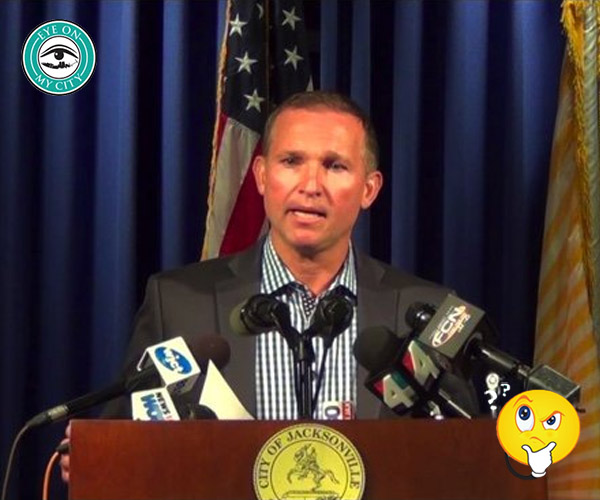
The rain that falls on your house or business property results in a tax called the stormwater fee.
The fee is based on the estimated amount of impervious surface at a home or business — the theory being that rain washes off those surfaces, collecting hazardous substances, and goes into the city’s drains and then local waterways. Some people were skeptical of the concept but it was designed to produce money to fund septic tank removal and drainage projects, and became law in 2008.
The legislation that established the fees said, “The city’s stormwater service charges shall be fair and reasonable, and bear a substantial relationship to the cost of providing service and facilities, in that similar properties shall pay similar stormwater service charges. Rate studies shall be conducted periodically to ensure the equity of the service charges.”
Five years after its inception, Council Member Lori Boyer said she was dissatisfied with the number of drainage projects and septic tank removals. John Crescimbini said it could be a sign the money was not being spent appropriately.
The council then enacted an ordinance requiring the Public Works Dept. to report quarterly how it was spending money collected in stormwater fees.
It appears that little of the money is going in the ground, leaving city officials scrambling to find other sources of revenue.
These are the projects for the current fiscal year, with total cost.
| Burnett Park Road | 500,000 |
| Drainage System Rehabilitation | 256,000 |
| Drainage System Rehabilitation | 4,200,000 |
| Dunn / Caney (Sapp Road) | 3,571,188 |
| Free Avenue | 254,000 |
| Irving Scott Drive | 161,000 |
| Ponce De Leon | 210,000 |
| San Jose Boulevard | 205,000 |
| San Marie Drive | 153,000 |
| Springrove Street | 815,000 |
| Stormwater Studies | 250,000 |
| Stormwater Pump Stations | 150,000 |
| Total cost | 10,725,188 |
The question we sought to ask is, how much of the fee revenue is being used for its intended purpose?
This is what the fee has produced since 2010, according to the tax collector’s records.
| Tax Year | Amount |
| 2010 | $27,456,747.01 |
| 2011 | $27,842,296.90 |
| 2012 | $28,022,501.42 |
| 2013 | $28,254,849.56 |
| 2014 | $28,440,111.48 |
| 2015 | $28,637,582.15 |
| 2016 | $28,936,561.18 |
| 2017 | $29,283,987.12 |
| 2018 | $29,675,113.69 |
| 2019 | $30,433,265.70 |
| 2020 | $31,650,420.99 |
| Total | $318,633,437.20 |
Eye on Jacksonville pored over the city’s budgets and capital outlay plans for those years because city officials were unable to provide the figure, and determined that expenditures for capital outlay total $106.3 million and amount to 33 percent of the fees collected during that period.
There are 53 employees currently. Their salaries and benefits, along with other operating expenses, apparently consume 2/3 of the money from the stormwater fee that is to be used for stormwater drainage and septic tank removal.
We also have not yet been able to find out how many septic tanks have been removed, but we continue asking.
Despite spending more than $318 million in the past decade, city officials are proposing to spend another $100 million and have been quoted as saying it is a $2 billion problem.
That perhaps is the reason Mayor Lenny Curry has been speaking privately with each individual council member, floating the idea of using the local gas tax revenue for more spending on drainage and septic tanks.
We understand he would like to dedicate 3 cents to the Jacksonville Transportation Authority for expressways and mass transit and the other 3 cents of the 6-cent local tax to fund the underground repairs. Each cent brings in about $5 million a year.
So far we have not be able to determine whether an attempt might be made to increase the tax, which could be a hard sell with the cost of gasoline increasing.







